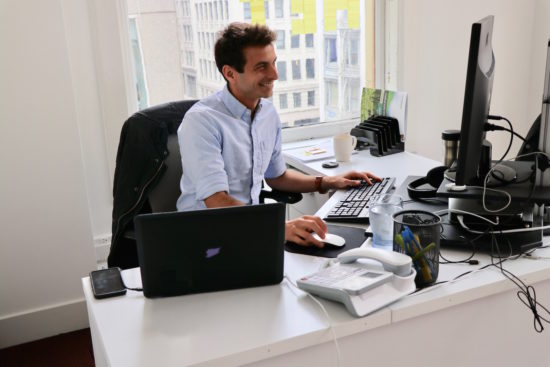Revving Up Research Capacity

As Accountability Counsel works to be a unifying force among advocates for accountability, we are investing in our programs to support others around the world who advocate for communities on the margin. Our research program is expanding to include in-depth case research, data aggregation and the management of a public accountability mechanism case database. This expansion allows advocates better access to case information and documentation on bank and mechanism decisions. Leading this expansion is Accountability Counsel’s new Research Director Samer Araabi.
Araabi has a diverse background in data science, the political economy of conflict, and software development. Prior to moving to San Francisco, he worked on development and stabilization programing in Syria from the Turkish border city of Gaziantep, where he helped local communities identify needs and secure funding to repair schools, fix electrical grids, drill water wells, and further other stabilization projects. As a consultant to a number of countries’ foreign ministries and international organizations, he has authored research on local ceasefire arrangements in Syria and the devolution of political authority, presenting his findings to members of Congress, the European Union, and the United Nations Security Council member states. He’s also the self-appointed maker of coffee for Accountability Counsel’s San Francisco headquarters. He hopes to get everyone into his hand-ground Turkish coffee by the end of his first year.
“There are essentially four elements to Accountability Counsel’s research work,” he explained. “First, we want to provide a centralized place for all of our collaboration with other accountability advocates. Second, we want to enable better case-based research any time a case requires more information, both for our own community cases and those that other advocates are working to support.
“Third, we also want to be able to tell a story about the state of accountability at international finance institutions as a whole by providing benchmarking data and tools to monitoring the progress or lack thereof for mechanism effectiveness. Finally, the Research team provides resources to Accountability Counsel’s Communities and Policy teams that allow them to track the progress of reform, gauge our effectiveness, and improve our ability to accompany communities.”
Araabi said that the best part of the job so far, besides great colleagues, is digging into the data to uncover a broader understanding of the accountability landscape. The data show how the banks, mechanisms, and the work of communities and civil society organizations, like Accountability Counsel, fit together.
“My biggest goal right now is to make Accountability Counsel well-equipped enough to provide a state of the art information system for this kind of accountability work,” he said. “Actively collecting data helps us see how the landscape for accountability is changing and how effective our advocacy is at creating that change. By tracking all the accountability complaints and inviting our global partners to analyze the information, we get a better picture of how to push for reforms that result in better outcomes for communities. This is how data can become power.”
Additionally, Araabi’s background in software engineering and web design has helped Accountability Counsel prepare to launch a new website, which will play a large role in making research more accessible to community advocates.
“I’m most excited about bringing online our database of all the accountability cases that have been filed at existing mechanisms,” he said. “The database is one of the main tools we will have to show the state of accountability in international project finance. The database will be one more way we and the global movement for accountability can track the progress of complaint mechanisms at actually providing remedy to communities.”
Learn more about our expanding research program here.![]()

